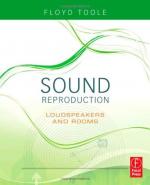|
This section contains 533 words (approx. 2 pages at 300 words per page) |

|
A loudspeaker is a device that converts electrical signals into audible sound waves. Before electricity, amplification was obtained by using an acoustical horn of the type seen on gramophones. The invention of the speaker came with the development of transducers, devices that convert mechanical energy into electrical energy. The first loudspeakers were patented in Germany in 1877 by Ernest Wermer and in 1898 by Oliver Lodge in England. Over the next twenty-seven years there was little advancement in loudspeaker technology.
During the early days of sending messages by radio, the transmitted signal was very weak. It was necessary to wear earphones and have absolute quiet in order to hear the feeble Morse code signals. Thanks to the work of Lee de Forest and Edwin Howard Armstrong in 1912, it became possible to amplify the weak signal considerably. (De Forest and Armstrong spent twenty years suing each other over the patent rights...
|
This section contains 533 words (approx. 2 pages at 300 words per page) |

|


